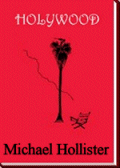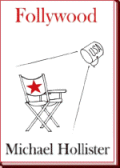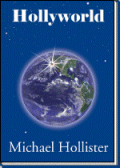Novelist & Critic
HOME PAGE
BIOGRAPHY
MODEL OF METAPHORS
DANEgerus
Patrick Garry, novelist
Apocalypse Now
The Best Years of Our Lives
The Big Chill
Billy Budd
The Bostonians
Casablanca
Citizen Kane
Close Encounters of the Third Kind
Coming Home
Daisy Miller
The Day of the Locust
Dr. Strangelove
Easy Rider
Fail-Safe
A Farewell to Arms
The Front
Gone with the Wind
Good Night, and Good Luck
The Graduate
The Grapes of Wrath
The Great Gatsby
Guilty by Suspicion
High Noon
Huckleberry Finn
Invasion of the Body Snatchers
Key Largo
The Majestic
Meet John Doe
Moby-Dick
The Old Man and the Sea
On the Waterfront
The Player
The Red Badge of Courage
Reds
The Scarlet Letter
The Shrike, based on Miss Lonelyhearts
2001: A Space Odyssey
The Sun Also Rises
Triumph of the Will
The Way We Were
Wise Blood
The Wizard of Oz
Woodstock
The World According to Garp
Peter Carafiol
Free Speech
Metaphor
archetype
Blacklist
Hollywood Novels
McCarthyism
Communist propaganda
The Front
Near the end of World War II, if President Franklin Roosevelt had died one year sooner, Henry Wallace would have become President, giving Stalin near control of the U.S. government. Wallace was strongly pro-Soviet and would have been likely to appoint Alger Hiss as secretary of state and Harry Dexter White as secretary of the treasury, both later proven to be Soviet agents. Wallace subsequently ran for President as the candidate of the Progressive Party, a Communist front, blaming Americans for the Cold War, advocating the surrender of Europe to Stalin and promising government control of the American movie industry as in the Soviet Union, with the active support of many Hollywood stars including Katharine Hepburn, Gene Kelly, Edward G. Robinson and Gregory Peck. President Kennedy got assassinated by a Communist, President Johnson got driven from office for his war against Communists and then President Nixon, the arch enemy of Communists, got forced out in disgrace. At fundraisers for the Democratic Party, Barbra Streisand sang her theme song from The Way We Were, her celebration of herself as a Communist. After his election, her candidate President Jimmy Carter, the peacenik peanut farmer who confessed in Playboy to having lustful thoughts about women and who abandoned our hostages in Iran, scolded Americans for their "inordinate fear of Communism."
Meanwhile, as a public service, Sarah made an effort to expose Communist propaganda. A current picture called The Front, for example, purported to be about effects of the Blacklist in television during the fifties in New York. It turned out to be another re-inflation of the myth, written by Walter Bernstein and directed by Martin Ritt, both Communists who were blacklisted for a few years yet were able to keep on working anyway. Five members of the cast also were blacklisted, including Zero Mostel. While "blacklisted," Bernstein wrote for television shows including You Are There, Studio One, Philco Playhouse and Danger. A dozen other blacklisted Communists wrote regularly for a dozen other shows as well as writing anthology programs and movies for television. As a loyal American screenwriter blacklisted out of the business by the Communists, Sarah felt a bitter irony.
Bernstein's hero in The Front is Woody Allen as a cashier and bookie who becomes a front for blacklisted writers. By this time Americans had fought two wars against Communists and were still engaged in the Cold War with the Soviets. Yet in this movie we are supposed to feel sorry for some privileged members of the cultural elite who resent having their incomes diminish because they have been identified as enemies of our country. There are moments of honesty, as when three Red writers sit with Woody in a cafe and explain to him that they are not innocent victims, they are actual hard core subversives. Betraying his country is fine with Woody the liberal, because he is profiting as their front. The comic Zero Mostel pretends to be a completely harmless liberal, a lovable Good Guy who was merely sympathetic to Communists. However, what happens to him never happened to liberals, only to dedicated Communists like the real Zero. The popular comics Woody and Zero front for fascists while Americans who defend Democracy are depicted as the Bad Guys, though Communism might as well be vegetarianism. We are never shown the meaning of it, nor the reasons for the Blacklist.
Just as the writers in the script use Woody, Bernstein and Ritt turn liberals collectively into a front, the routine strategy of the Communist Party since the thirties. They imply falsely that innocent liberals were punished for being liberals, that they were forced to name and spy on other liberals and that the investigation by the House Committee on Un-American Activities was illegal. At the climax, Woody tells the Congressmen, "You can all go fuck yourselves!" For this easy orgasm of revenge, liberals nominated Bernstein for an Academy Award.
Of course, Sarah did not use that language.
Hollyworld, pages 168-70.
The
HOLLYWOOD
Trilogy
Three historical novels dramatize Hollywood's global influence from the 1930s to the present age of terrorism, through the life stories of Sarah McCloud, a farm girl from Oregon, and Ryan Eisley, the son of a beer distributor from Ohio.



Click Book to Order